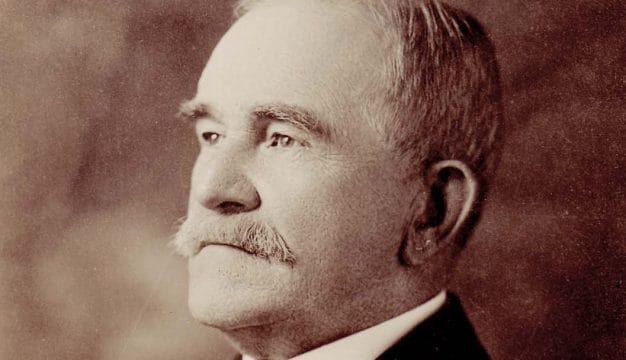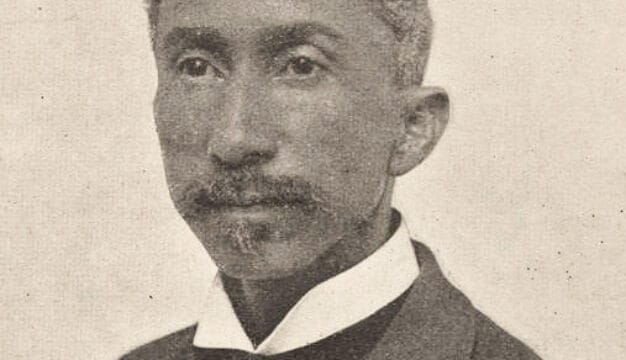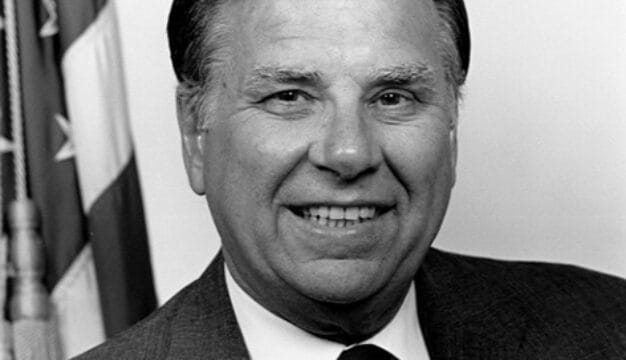William W. Brandon (1923-27)
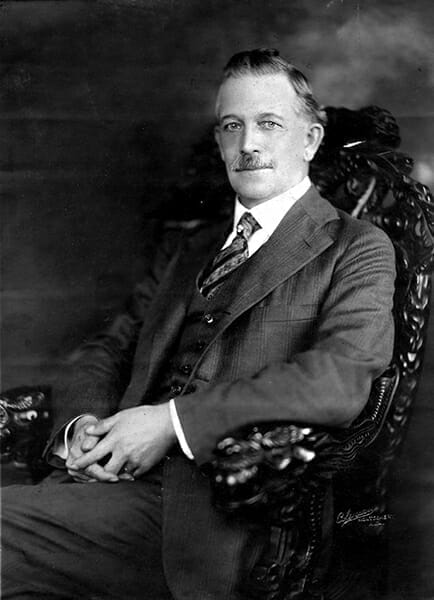 William W. Brandon
William W. Brandon (1868-1934) was Alabama’s governor from 1923-27, having first served in local and state political offices and administrative positions and in the military during the Spanish-American War. As governor, he oversaw improvements in Alabama‘s highway system and Mobile‘s port facilities and improved the state’s financial condition. He twice represented Alabama as a delegate to the Democratic National Convention and gained renown for his distinctive oratorical style. Although the Brandon administration was free of scandal, it was also marked by little noteworthy and represented a quiet period between the more active administrations of governors Thomas Kilby and David Bibb Graves.
William W. Brandon
William W. Brandon (1868-1934) was Alabama’s governor from 1923-27, having first served in local and state political offices and administrative positions and in the military during the Spanish-American War. As governor, he oversaw improvements in Alabama‘s highway system and Mobile‘s port facilities and improved the state’s financial condition. He twice represented Alabama as a delegate to the Democratic National Convention and gained renown for his distinctive oratorical style. Although the Brandon administration was free of scandal, it was also marked by little noteworthy and represented a quiet period between the more active administrations of governors Thomas Kilby and David Bibb Graves.
William Woodward Brandon was born in Talladega, Talladega County, on June 5, 1868, to Franklin Thomas Jefferson Brandon and Caroline Woodward Brandon. His father was a Methodist minister and subject to frequent reassignments. Brandon received his early education at Cedar Bluff Institute in Cherokee County and graduated from high school in Tuscaloosa. He took a law course at the University of Alabama in 1891, and in the same year was elected to the first of three terms as Tuscaloosa’s city clerk. In 1892, he opened a law practice in Tuscaloosa and was appointed justice of the peace. In 1900, he married widow Elizabeth Andrews Nabors, whose first husband had been a Methodist minister and with whom she had two daughters. The Brandons had no additional children. When she became the state’s First Lady, Elizabeth Brandon initiated the popular custom of receiving friends and visitors at the governor’s mansion every Tuesday afternoon.
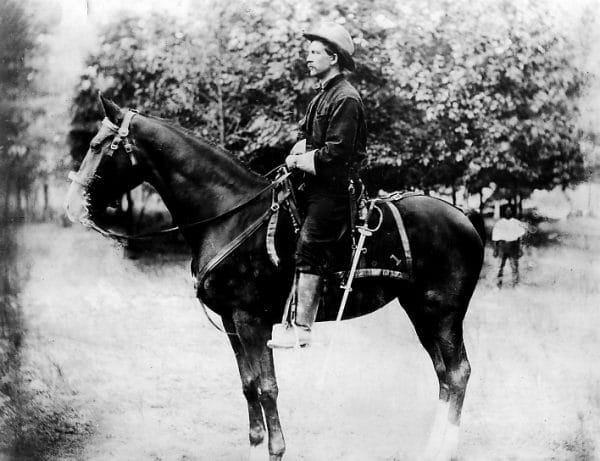 William W. Brandon
Prior to his political career, Brandon in 1886 joined the local Warrior Guards, part of the Alabama National Guard, and was elected lieutenant two years later. He was promoted to captain in 1894, at which time he established a military journal, The Citizen Soldier, for his troops. With the outbreak of the Spanish-American War in 1898, Brandon joined the Second Alabama Volunteers, was promoted to major, and was dispatched to Florida, where his unit remained until the brief war ended. In 1899, he was appointed state adjutant general by Gov. Joseph F. Johnston and was reappointed by governors William J. Samford and William D. Jelks, serving until 1907. During his tenure as commander of the state’s military forces, Brandon followed the national mandate and implemented reorganization and modernization policies.
William W. Brandon
Prior to his political career, Brandon in 1886 joined the local Warrior Guards, part of the Alabama National Guard, and was elected lieutenant two years later. He was promoted to captain in 1894, at which time he established a military journal, The Citizen Soldier, for his troops. With the outbreak of the Spanish-American War in 1898, Brandon joined the Second Alabama Volunteers, was promoted to major, and was dispatched to Florida, where his unit remained until the brief war ended. In 1899, he was appointed state adjutant general by Gov. Joseph F. Johnston and was reappointed by governors William J. Samford and William D. Jelks, serving until 1907. During his tenure as commander of the state’s military forces, Brandon followed the national mandate and implemented reorganization and modernization policies.
Alongside his military service, in 1896 Brandon was elected to the state legislature, serving three terms in the state house. Known for his legislative skill, Brandon was at various times a member of the State Democratic Executive Committee and would serve as reading clerk at the 1901 constitutional convention. Brandon’s career was moving inexorably toward the governorship, which had long been his ambition. He was elected state auditor in 1907, a minor position that was often used in that era as a stepping stone to more prominent state offices. As auditor, Brandon introduced a system of accounting practices that earned plaudits from the state examiner of accounts, and he was also elected probate judge of Tuscaloosa County. In 1918, he made his first run for the governorship, coming in a close second to Thomas Kilby. He continued to campaign vigorously during the next four years and was elected governor in 1922 by a margin of three to one over Bibb Graves, who was making his first bid for the office. The new governor was elected on a platform of economy in government, no new taxes, and defense of the convict-lease system.
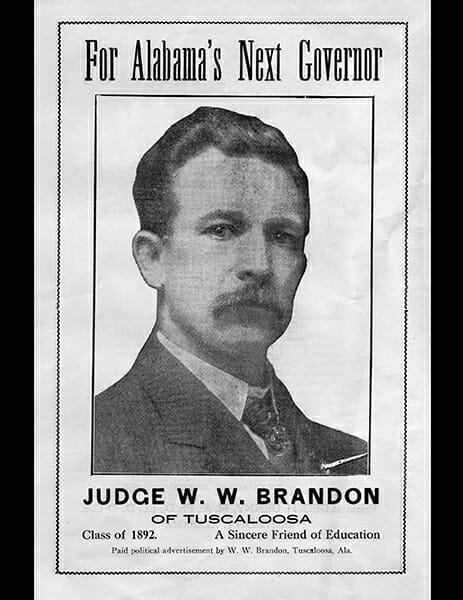 Brandon Campaign Poster
Brandon’s modest accomplishments as governor were made possible by the prosperous 1920s. Inheriting a substantial debt from Kilby, the Brandon administration, through a combination of good economic fortunes and strict fiscal restraints, passed on a small surplus to the next governor. Although he had spoken in campaign speeches of the need for more support for education, no new initiatives were undertaken during his economy-minded term as governor. He used bond money authorized during the Kilby administration to improve Alabama’s roads, a growing need as the automobile was rapidly supplanting the horse and buggy. Brandon promoted this issue both as governor and afterward as president of the United States Good Roads Association. In another modest move, the Alabama Forestry Commission initiated efforts to use nonagricultural lands more profitably and encouraged wood-products industries to invest in Alabama.
Brandon Campaign Poster
Brandon’s modest accomplishments as governor were made possible by the prosperous 1920s. Inheriting a substantial debt from Kilby, the Brandon administration, through a combination of good economic fortunes and strict fiscal restraints, passed on a small surplus to the next governor. Although he had spoken in campaign speeches of the need for more support for education, no new initiatives were undertaken during his economy-minded term as governor. He used bond money authorized during the Kilby administration to improve Alabama’s roads, a growing need as the automobile was rapidly supplanting the horse and buggy. Brandon promoted this issue both as governor and afterward as president of the United States Good Roads Association. In another modest move, the Alabama Forestry Commission initiated efforts to use nonagricultural lands more profitably and encouraged wood-products industries to invest in Alabama.
Perhaps the most notable achievement of Brandon’s administration was the creation of the Alabama State Docks Commission. A $10 million bond issue financed improvements, which included deepening the port and enhancing facilities. These improvements made it possible for the state’s industries to use Mobile rather than New Orleans for its incoming and outgoing products, saving Alabama industries millions of dollars over the next several decades and turning Mobile into a major gulf port.
In defending the convict-lease system, Brandon expressed the view that it was not inhumane, that it provided work for otherwise idle hands, that it put a small sum of spending money in the pockets of the prisoners, and that it relieved the state of a heavy expense while generating needed revenues. He was generous with paroles for convicts despite a storm of protest throughout the state. Brandon acted in accordance with his Christian upbringing, which had taught him to think the best of people and to believe that lives could be redeemed and turned around. His rosy outlook on the system allowed it to continue with little improvement. Indeed, Alabama was the last state in the Union to end the practice.
At the conclusion of his single term as governor, Brandon returned to the office of probate judge under appointment of his successor, Bibb Graves. Brandon served as chairman of the Alabama delegation to the Democratic National Convention of 1924, where he cast the state’s vote for Alabama senator and presidential candidate Oscar W. Underwood. Brandon, at only just over five feet tall, had to stand on a chair to be seen. With no electronic amplification but with a booming voice, he had no trouble being heard as he proudly announced, “Alabama casts twenty-four votes for Oscar W. Underwood.” In fact, the lone microphone on the speaker’s podium, which carried the proceedings to a small radio audience in the eastern portion of the nation, picked up the vote. Later in the proceedings, which required 103 ballots, visitors in the balcony and eventually other delegates as well began to join with Brandon as he rhythmically cast the Alabama vote. For many years, his voice and his vote were remembered and repeated by scores who followed politics.
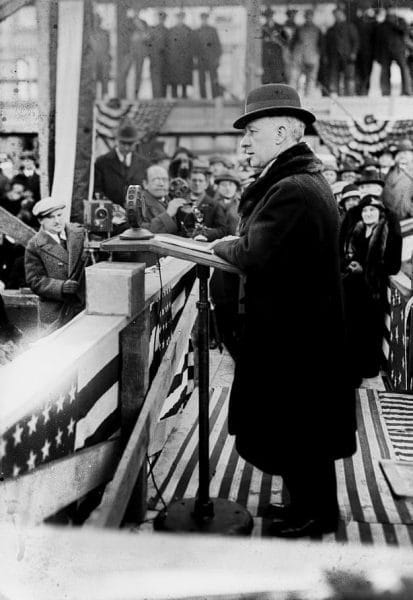 Alfred E. Smith
He remained active in Democratic politics and in 1928, when Alabama Democrats split over the candidacy of Al Smith—the first Roman Catholic nominated for president by a major political party—Brandon remained loyal to the national ticket. His popularity and loyalty helped to carry the state for the Democrats despite opposition from such Alabama political stalwarts as Sen. Tom Heflin. Despite declining health, Brandon announced his candidacy for delegate at large to the 1932 Democratic National Convention. After initially opposing Franklin D. Roosevelt, Brandon became a supporter and was elected a delegate to the national convention. Brandon was once again chosen to chair the Alabama delegation, but poor health and age had tarnished his famed speaking ability of 1924 as he again intoned, “Alabama casts twenty-four votes for Roosevelt.”
Alfred E. Smith
He remained active in Democratic politics and in 1928, when Alabama Democrats split over the candidacy of Al Smith—the first Roman Catholic nominated for president by a major political party—Brandon remained loyal to the national ticket. His popularity and loyalty helped to carry the state for the Democrats despite opposition from such Alabama political stalwarts as Sen. Tom Heflin. Despite declining health, Brandon announced his candidacy for delegate at large to the 1932 Democratic National Convention. After initially opposing Franklin D. Roosevelt, Brandon became a supporter and was elected a delegate to the national convention. Brandon was once again chosen to chair the Alabama delegation, but poor health and age had tarnished his famed speaking ability of 1924 as he again intoned, “Alabama casts twenty-four votes for Roosevelt.”
Brandon died in a Tuscaloosa hospital on December 7, 1934, and was buried in Tuscaloosa Memorial Park cemetery. In 1938, the National Guard armory in Tuscaloosa was dedicated as Fort William W. Brandon.
Note: This entry was adapted with permission from Alabama Governors: A Political History of the State, edited by Samuel L. Webb and Margaret Armbrester (Tuscaloosa: University of Alabama Press, 2001).
Further Reading
- William W. Brandon Papers. VF Miscellaneous Clippings (Box SC 7000), Alabama Department of Archives and History, Montgomery.
- Kelley, Richard B. Collection (Box SC 2285). Alabama Department of Archives and History, Montgomery.
